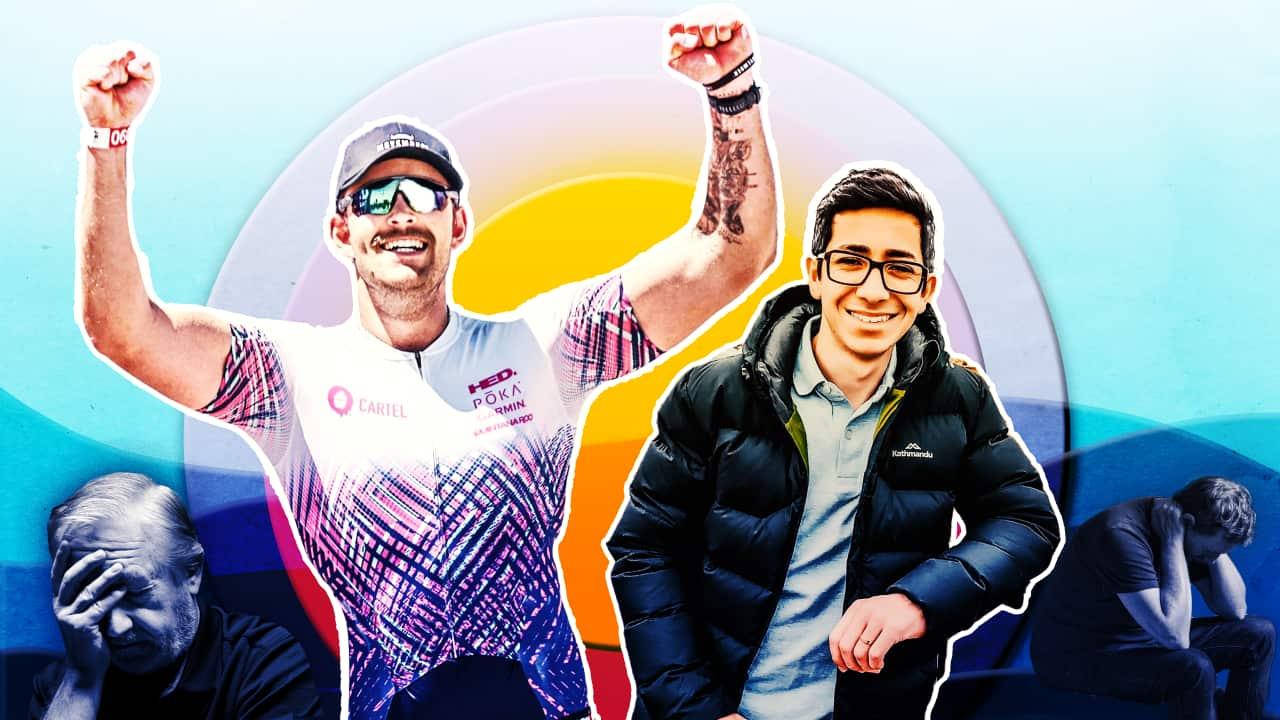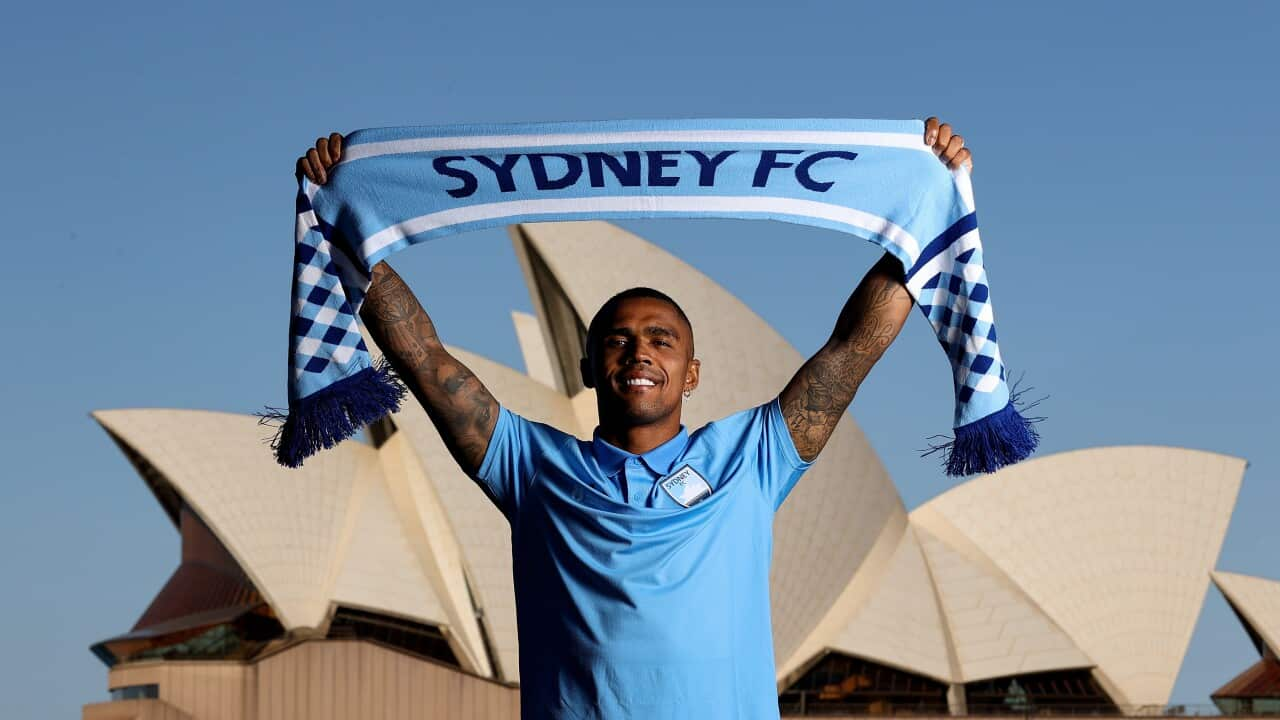Hugo Cary, 34, from Scarborough, Western Australia, has found unexpected fame in Brazil after he spent a time in one of Rio’s most notorious favelas, the Complexo do Alemão, most of which is controlled by the Red Command drug gang.
Aware that he “may have acted a bit stupid”, Cary says he's using that newfound fame to raise funds for the children he met in the favela. He raised $2,000 in the fundraisers first day and is aiming to reach $10,000 to help with the children’s education.
Cary says he decided to venture into Rio's most dangerous favela, where gun violence between police and drug gangs regularly catches civilians in the crossfire, because he wanted to avoid tourists.
“I know that are organised tours to some favelas, tours that take people to watch the residents as they go about their lives, as it is like an animal safari - that doesn’t sit well with me. I want to go somewhere authentic and dangerous as well, I kind of like that sometimes.”

Hugo Cary: “I don’t have a precise answer to give you about why I went to 'Complexo do Alemao'. While I was in Rio and knew about the favelas from people I met and things I heard about favelas for being obviously dangerous places but also for being some of the most authentic places in Brazil, full of life, full of community, full of atmosphere.” Source: Getty
Speaking to SBS Portuguese from a boat "in the middle of nowhere surrounded by islands in Indonesia" Cary explains how he had made plans to visit such dangerous slums.
He first drafted a letter to show to anyone he would meet during his trip to the slum.
“I had help from a lady, from a fast food joint, who wrote me a letter in Portuguese, where I said what my intentions were. It said, 'Hi my name is Hugo, I come here as a guest. I come in peace, I bring nothing but love. Just here to meet you guys and experience the favela, if I am allowed to.'"
He also didn’t take much money with him, or anything “blingy”.
"I just went there with that letter to see if I could hang out there and be part of the community for a while."
With his translated letter in hand, Hugo took a cab at 3.30am and told the driver to take him to the most dangerous favela in Rio.
“Probably wasn’t the smartest time to go. But it was what I felt like doing it at that particular time." “I got there around 5 am, saw people going to work, I got a few funny looks but no one said anything. I walked in, got picked up pretty quickly buy what they call ‘scouts’, two guys armed with machine guns, probably in their late teens. They were surprised but they approached me and asked what I was doing and gave me the time to explain what my intentions were.”
“I got there around 5 am, saw people going to work, I got a few funny looks but no one said anything. I walked in, got picked up pretty quickly buy what they call ‘scouts’, two guys armed with machine guns, probably in their late teens. They were surprised but they approached me and asked what I was doing and gave me the time to explain what my intentions were.”

“Probably wasn’t the smartest time to go. But it was what I felt like doing it at that particular time." Source: Instagram
By this point Cary had forgotten his letter in the cab and had to use his phone to google translate the first meeting with the men.
“I didn’t feel threatened by them or anything. The hardest was to convince them I wasn’t an undercover police officer. After an hour hanging out with them they took me to the exit and said that 'I was free to go and it’s not safe in here.'”
Hugo recalls thinking that they may have been worried about another gang coming or police and “that I could be stuck in the crossfire.”
He then decided not to leave the favela and went back in, the scouts communicating between themselves via radio, letting him stay.
“I then went in and up the favela [favelas are located in the hills surrounding Rio] and spent the rest of the day hanging out with them, sharing stories about their lives, about my life, played music, joked around. I had a few beers with them and left late in the afternoon.
"Obviously just by the language barrier, the location, the conditions they were living in, and the weapons, we were just brothers hanging out.”
When he finally left in the afternoon, escorted again to a safe exit, he still stopped to play with local children and show them tricks with a coin. By then his phone was flat and he couldn’t hail a ride, so was helped by residents who charged his phone and got him into a cab.
“Yes I do feel I am lucky," says Cary of his experience. "The luckiest thing it was that I wasn’t shot on my entry.”
Asked if he believes he thought hard enough about his actions before going in, Hugo says, “there’s a fine line between courage and stupidity."
"I took a risk. But I wasn’t putting anyone in harm, it was purely my own thing. The media picked up the story and painted me as a drunk Aussie doing a stupid act… they don’t know.” He says he now is using the story and unexpected fame in Brazil to do some good for the children he met in the favela. Cary says looking back he is saddened by the fact those children don't have the same opportunities he had growing up in Australia.
He says he now is using the story and unexpected fame in Brazil to do some good for the children he met in the favela. Cary says looking back he is saddened by the fact those children don't have the same opportunities he had growing up in Australia.

When he finally left in the afternoon, escorted again to a safe exit, he still stopped to play with the local children and show them magic tricks with a coin. Source: Supplied
“I want to raise some money for the kids of this favela, just to help out with their education. I raised $2000 but mainly from people I know.”
“These children are so intelligent for their ages. It really sucks that these guys don’t have the same opportunities that we all have. That really breaks my heart, they are so bright and so full of life.
“Despite what is going on with the politics, police, the drugs, these are just kids. They have no choice in the matter. I know I can’t solve the problem but if I can help a little bit some kids to reach their full potential, I’ll do it.” Would he go back and do it all again?
Would he go back and do it all again?

Children play on a small square in the lower part of the favela Complexo do Alemao. The Complexo is a big favela in Rio de Janeiro consisting of 25 settlements. Source: Getty
“I would like to go back, but many articles in the media said things I didn’t say, and if these guys read them they would be upset with me. I would love to go back but I don’t want to go back if people are pissed off. I don’t want to get shot. I am not trying to die here.
"I want to be pretty clear that this was a one off.”




